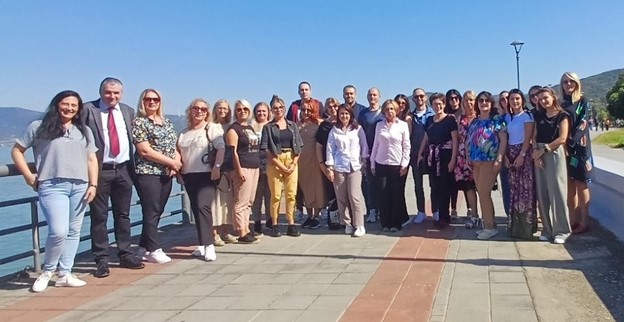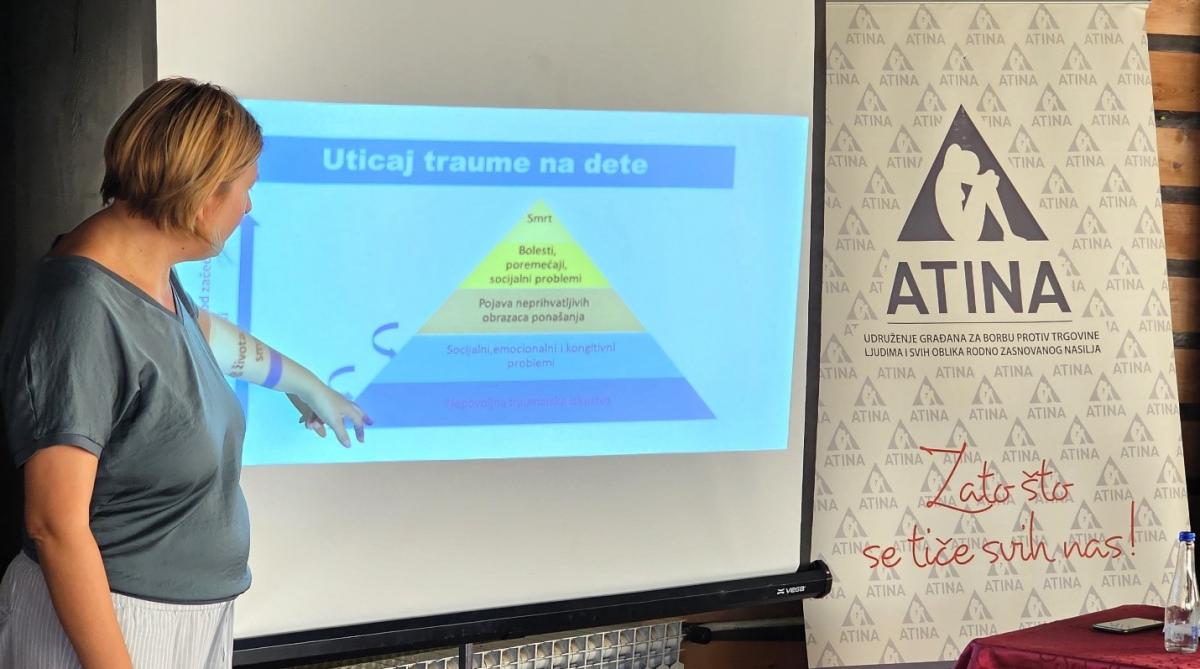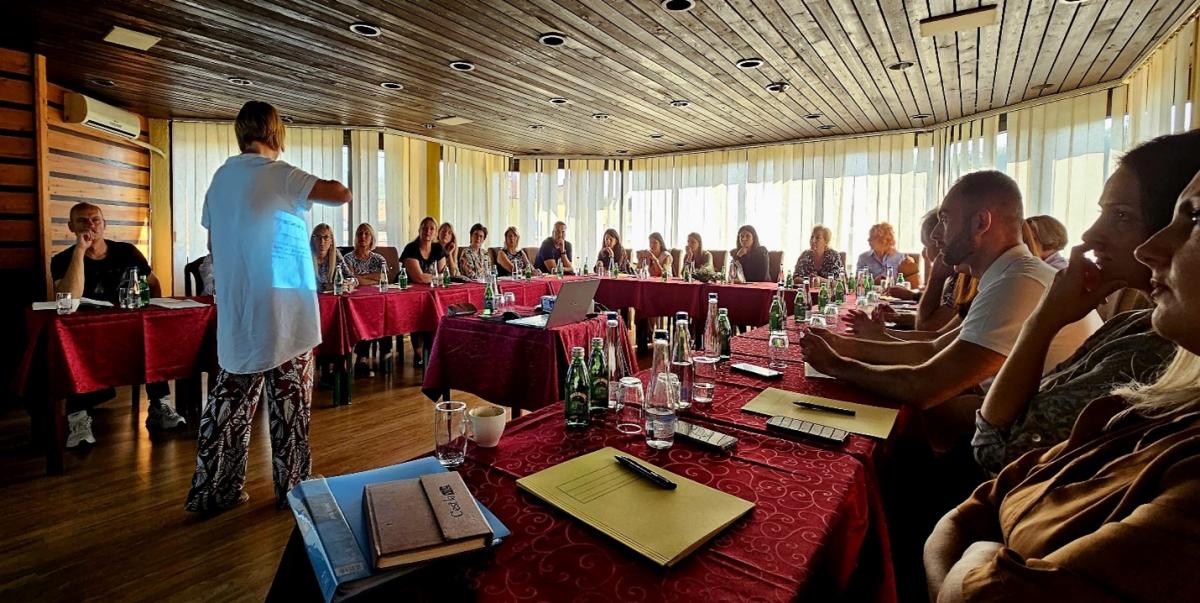Hotline: +381 61 63 84 071
Working with children, witnesses, and victims of domestic violence is crucial for the future of us all

Photo: NGO "Atina
Working with children, witnesses, and victims of domestic violence is crucial for the future of us all
The training entitled “Improving the knowledge and skills of professional workers in work with children witnesses or victims of domestic violence” was organized on September 28, 29, and 30 in Golubac for 27 professional workers from the social protection system.
The training participants were professional workers from Safe Houses Vranje, Priboj, Leskovac, Niš, and Kragujevac, as well as social workers from the Centers for Social Work Vranje, Niš, Golubac and Gradište (which are merged into one CSW), Požarevac, and Leskovac. Even though professional workers from safe houses for victims of violence and centers for social work partially differ in the domains of their competencies and the manner of service provision, they are all on the frontline of providing support to children, who are beneficiaries of the services of safe houses together with their mothers, as well as beneficiaries of centers for social work as the prominent institutions for children in various states of need and the referral authority for placement in safe houses.
Two excellent experts led the training from the Belgrade Institute of Mental Health, psychologist Jelena Radosavljev Kirćanski, and social worker Jasmina Bogdanović, selflessly, from professional and personal experience, shared guidelines, practices, and skills with the training participants. The topics included in this training were: children's development norms - what we expect at which stage of children's development; how domestic violence disrupts typical development, and what happens in the development of children and young people who are victims of domestic violence; then, how to recognize children's traumatic reactions and challenging behaviors of children who are witnesses and victims of domestic violence. In addition to creating strategies for dealing with children that they will apply in their work, the participants had the opportunity to discuss the most acceptable ways of communicating with children who are witnesses of domestic violence to exchange the difficulties faced by experts in safe houses and the most appropriate strategies for intervening in complicated situations, as well as to map resources and create an eco-map that shows cooperation with other services.

Photo: NGO "Atina
The focus of the training was aimed at understanding trauma from a child's point of view, how trauma affects children, and how important safety is to every child from birth. Children who are witnesses and victims of trauma have lost that safety or never had it in their primary family. Through various examples, it was shown how children, depending on their age, feel and experience violence. Despite the numerous differences in age, one thing is common to all children - their need to feel safe and secure. Precisely because of that sense of security that the violence destroyed or even prevented from developing, children independently develop survival mechanisms, but also a sense of guilt that they could have prevented the violence or that they were the cause of domestic violence.
Through various interactive exercises, training participants had the opportunity to put themselves in the role of children who are witnesses and victims of violence. Guided by the lecturers’ expert methods, they could feel how children become isolated from society and the environment they are in, what the difference is between the children who grow up in a healthy and non-violent environment where all their needs are met and those who are invisible to their family, but also to the protection system.
Through joint work, the participants also had the opportunity to see their role and where all of us as individuals, society, and specialized professional workers are in the chain and system of providing assistance and support to children. Trauma will not disappear, but it is our responsibility to help children become adults who will be able to bear their trauma and not let the trauma of violence carry and guide them through life.

Photo: NGO "Atina

This text was developed under the project “Safety of Women and Girls in Serbia,” implemented by UN Women Serbia in cooperation with the Coordination Body for Gender Equality and Ministry of Labour, Employment, Veteran and Social Affairs, with the support of the British Embassy in Belgrade. The views in this text are those of the authors and do not necessarily represent the views of UN Women and the British Embassy in Belgrade.












 FACEBOOK
FACEBOOK TWITTER
TWITTER YOUTUBE
YOUTUBE